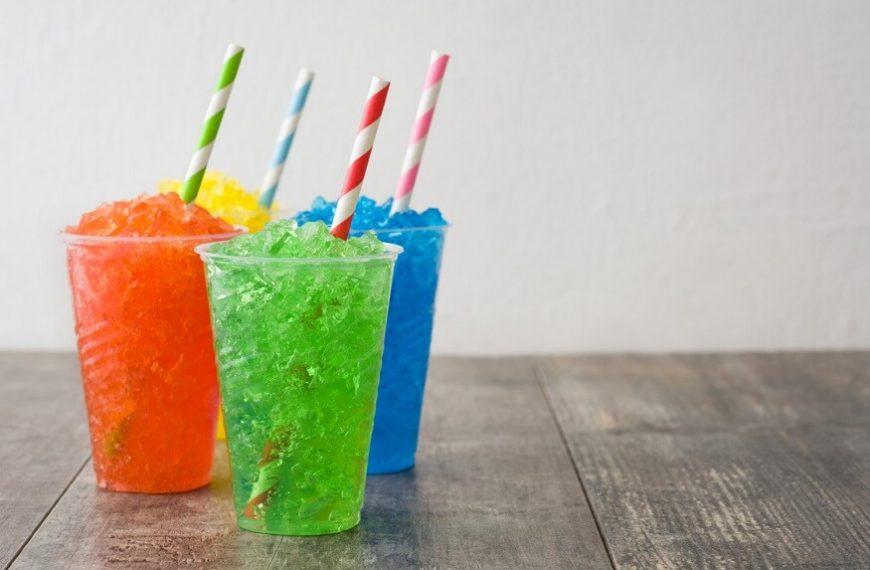Exploring Sugary Drinks: Health Effects, Diseases, and Alternatives
We often reach out for that fizzy can or a bottle of our favourite sugary beverage without giving much thought to the repercussions. Many believe that since these beverages quench our thirst, they can’t be all bad. However, the mounting evidence on the health effects of sugary drinks indicates otherwise. This article delves deep into the pros and cons of sugary drinks, discusses the diseases caused by sugary drinks and offers solutions on how to avoid sugary drinks in favour of healthier alternatives.
Pros and Cons of Sugary Drinks
To provide a balanced view, let’s explore both sides of the coin.
Pros:
Instant Energy Boost: Sugary drinks offer an immediate spike in energy, thanks to the high sugar content. For those experiencing an energy slump, these drinks provide a quick pick-me-up.
Palatable: The sweet taste is universally liked, making these drinks popular across age groups. Their wide variety ensures there’s something for everyone.
Refreshment: Cold sugary drinks can offer a temporary feeling of refreshment, especially in hot weather.
Cons:Weight Gain and Obesity: One of the main health effects of sugary drinks is weight gain. These drinks contain empty calories with no essential nutrients. Consuming them regularly can lead to increased calorie intake and subsequently, obesity.
Tooth Decay: Sugar is the main culprit behind cavities. When you frequently consume sugary beverages, you provide a continuous supply of sugar that bacteria in the mouth use to produce acid. This acid erodes the tooth enamel, leading to cavities.
Increased Risk of Type 2 Diabetes: Regular consumption can lead to insulin resistance. This means your body isn’t effectively using insulin, raising your blood sugar levels, which can lead to type 2 diabetes.
Heart Diseases: Elevated sugar intake is associated with high triglycerides, increased LDL cholesterol levels and other risk factors for heart diseases.
The Dire Health Effects of Sugary Drinks
It is evident that the cons outweigh the pros. The health effects of sugary drinks extend beyond mere weight gain. Their consumption has been linked to several chronic diseases.
Bone Fractures: Regular intake can lead to lower bone density. People who consume these drinks are also prone to more physical activities that risk bone fractures.
Gout: High fructose content in sugary beverages can cause a rise in uric acid levels, leading to gout, a painful joint condition.
Liver Diseases: Excess sugar gets converted into fat in the liver. This can lead to fatty liver disease, a precursor to cirrhosis and other liver conditions.
Accelerated Ageing: Diseases caused by sugary drinks are not just internal. Phosphoric acid, present in many sodas, can cause skin to age faster than normal.
Diseases Caused by Sugary Drinks
Let’s delve deeper into some of the major diseases linked to these beverages.
Type 2 Diabetes: As mentioned, frequent consumption affects insulin resistance. According to the Diabetes Foundation, those who consume 1-2 cans per day have a 26% greater risk of developing type 2 diabetes than those who rarely indulge.
Heart Disease: People who consume sugary drinks regularly have a 20-25% higher risk of dying from heart disease, as per a significant study.
Tooth Decay: This is perhaps the most evident disease caused by sugary drinks. Dental associations have time and again pointed out the alarming rise in cavities and tooth extractions, especially in children, due to these drinks.
Obesity: While not a disease per se, obesity is a condition that opens doors to multiple health issues like hypertension, heart diseases, and even certain cancers. The World Health Organisation identifies the consumption of sugary drinks as one of the leading causes of global obesity.
The Hidden Sugars in ‘Health’ Drinks
Often, we believe we are making healthier choices by picking ‘diet’ or ‘zero’ versions of our favourite beverages, or even sports and energy drinks. However, this is far from the truth. Let’s break this illusion and understand the hidden pitfalls.
Diet and Zero Drinks: While these versions might boast of zero sugars, they contain artificial sweeteners. Research has shown that artificial sweeteners can potentially disrupt the gut’s microbial balance. Additionally, they can trick the brain into thinking it’s getting sugar, leading to more sugar cravings and consumption later on.
Sports Drinks: Aimed at athletes for hydration and replenishing electrolytes, these have become a popular choice among many, even those not engaging in strenuous activities. Many of these drinks contain a high amount of sugars. If you’re not burning off those extra calories through intense physical activity, they add up.
Energy Drinks: Marketed to boost energy and alertness, they pack not only a high sugar content but also caffeine and other stimulants. Regular consumption can lead to a range of health issues from insomnia and jitters to more severe complications like heart palpitations.
Flavoured Waters: These may seem like a good alternative to plain water, but many contain almost as much sugar as sodas. It’s always best to read the label before purchasing.
The Way Forward
Awareness is the first step towards change. The key is to read labels meticulously, understand the ingredients and make well-informed choices. Always remember, just because a drink is marketed as ‘healthy’ doesn’t necessarily make it so.
Avoiding Sugary Drinks: The Healthier Alternatives
To avoid sugary drinks is to make a conscious choice for better health. Here are some alternatives:
Water: The simplest and healthiest drink. To make it flavourful, add a slice of lemon, cucumber, or some fresh herbs.
Herbal Teas: Green tea, chamomile, or peppermint tea offer great taste without the harmful sugars.
Natural Fruit Juices: Opt for fresh fruit juices without added sugars. Remember, moderation is key as natural juices still contain fructose.
Milk or Plant-Based Alternatives: Calcium-rich and good for bones, milk is an excellent choice. If you’re lactose intolerant, almond or soy milk can be your go-to option.
Incorporating a balanced diet for toddlers, a balance in our diets, focusing on whole foods and natural beverages, and limiting processed and sugary items will always stand us in good stead. It’s not about depriving ourselves but about nurturing our bodies. So, the next time you’re about to reach for that brightly coloured bottle, take a moment to think: Is this nourishing or just momentarily pleasing? Avoiding sugary drinks might seem challenging initially, but with time and knowledge, it becomes second nature.
In conclusion, while the temporary pleasure of a sweet, fizzy drink might be tempting, the long-term health effects of sugary drinks should not be ignored. It’s crucial to be aware of the diseases caused by sugary drinks and make informed choices.
At EuroKids, we are of the opinion that opting for healthier beverages not only benefits our physical health but also sets a positive example for the younger generation. Avoid sugary drinks and embrace a healthier future.
















